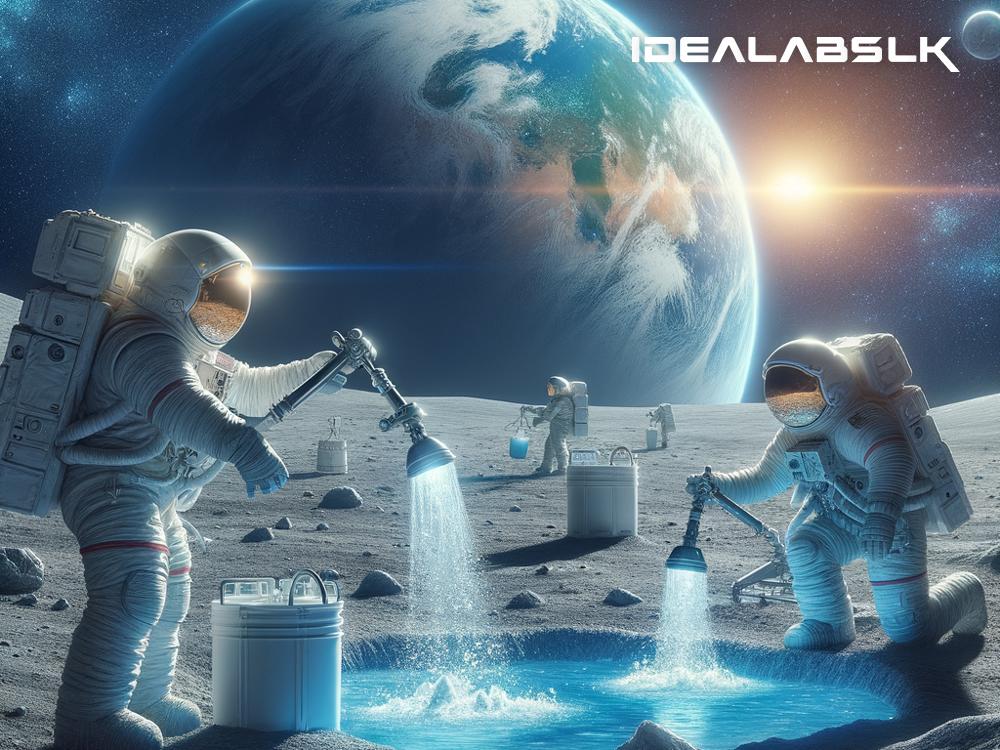How the Discovery of Water on the Moon Will Shape Future Space Exploration and Lunar Colonization by 2024
The discovery of water on the Moon is not just a mere scientific curiosity; it's a game-changer for the future of space exploration and the dream of lunar colonization. This discovery, which might have seemed like a plot from a science fiction novel not too long ago, is now setting the stage for an unprecedented era in human space exploration. As we approach 2024, the implications of this discovery are becoming more evident, promising to shape the strategies and technologies for missions beyond Earth.
Why Water on the Moon Matters
Water is essential for life as we know it. But beyond sustaining human and potential future lunar life, water on the Moon holds the key to making space exploration more feasible and economical. Here’s why:
-
Life Support: Water can be broken down into oxygen (for breathing) and hydrogen (which could potentially be used as fuel). This makes extended stays on the Moon more practical without having to carry vast amounts of water from Earth.
-
Fuel Station in Space: Water can be split into hydrogen and oxygen, two critical components in rocket fuel. The Moon could serve as a pit-stop for missions going deeper into space, dramatically reducing the cost and complexity of space travel.
-
Reduced Earth Dependence: The ability to use the Moon’s resources means future missions could become more self-sufficient, lessening the load and cost of missions by not having to bring everything from Earth.
The Path to Lunar Colonization by 2024
With these advantages in mind, several space agencies and private companies are gearing up to make lunar colonization a reality by 2024. Here’s how the presence of water is shaping these efforts.
Infrastructure Development
Building a lunar base is on the agenda, with the presence of water inspiring designs that incorporate in-situ resource utilization (ISRU) technologies. These technologies are focused on extracting and using the Moon's natural resources, including water, to support human life and missions. Think of it as living off the land, but in space.
Mission Focus
Missions planned for the Moon are increasingly focused on areas where water ice has been detected, such as the lunar south pole. Probes, rovers, and landers are being outfitted with drilling equipment and other instruments specifically designed to confirm water reserves and determine how it can be extracted and used.
International Collaboration
The discovery of water has sparked a renewed interest in the Moon, leading to increased international cooperation. Countries and companies are forming partnerships to share resources, knowledge, and technologies. This collaborative approach is accelerating the timeline for establishing a permanent human presence on the Moon.
Technological Innovation
The challenge of extracting, purifying, and utilizing lunar water is driving innovation. New technologies are being developed for mining water ice, converting it into usable forms, and efficiently recycling it within moon bases. These technological advances not only promise to make life on the Moon feasible but also have potential applications on Earth, particularly in areas where water is scarce.
The Moon as a Stepping Stone
Looking beyond 2024, the Moon is envisioned as a stepping stone to more ambitious missions, such as crewed missions to Mars and beyond. The strategies and technologies developed for using water on the Moon will be invaluable for these longer-duration missions, where resupply missions from Earth are impractical.
In essence, the Moon could become a blueprint for living on other planets. The lessons learned from lunar colonization—ranging from surviving in a harsh environment to using local resources—will inform our approach to exploring farther reaches of our solar system.
What This Means for Humanity
The discovery of water on the Moon represents a historic moment in space exploration, reminiscent of the first steps taken by Neil Armstrong and Buzz Aldrin. However, the significance of this discovery goes beyond setting foot on another world; it’s about making other worlds a place where humans can stay, work, and potentially live.
As we approach 2024, the dream of lunar colonization fueled by the discovery of water on the Moon is turning into a tangible goal. This endeavor is not just about exploring the unknown but about securing the future of humanity in space, demonstrating our resilience, and our ability to adapt and thrive in the cosmos.
In conclusion, the discovery of water on the Moon is a beacon of hope and excitement for the future of space exploration. As we look to the stars, it's clear that our journey is just beginning, and the Moon, with its newly discovered water, is leading the way.

